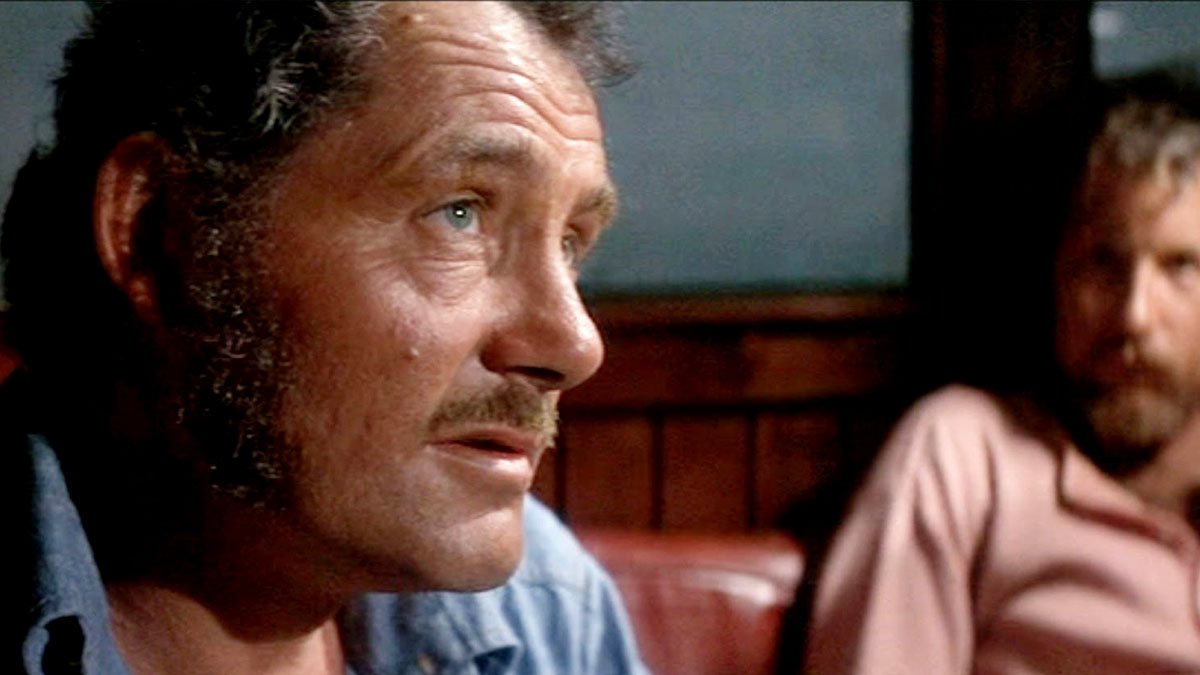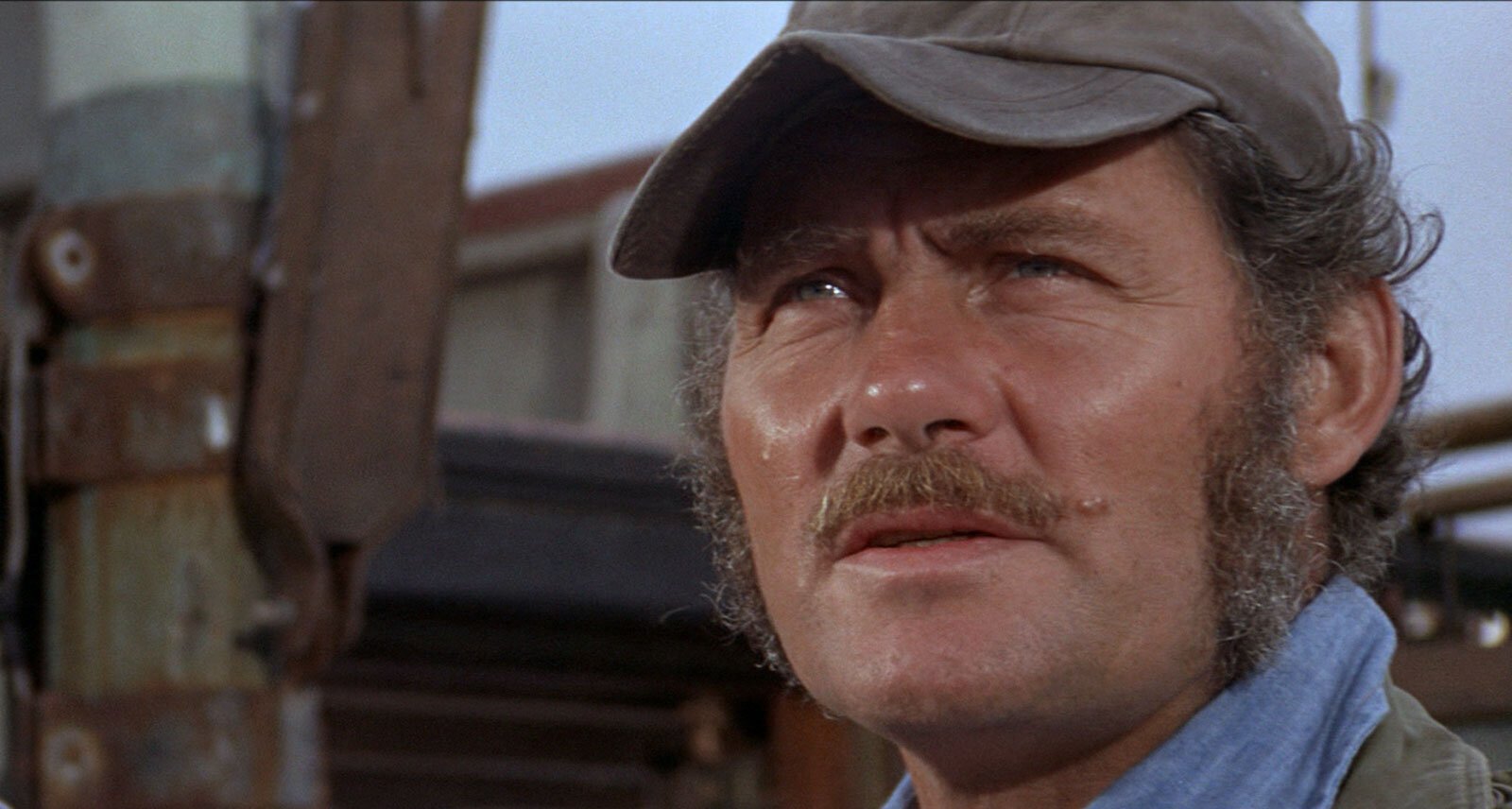Why Quint from Jaws is the most tragic character in cinema
Hello, Islanders!
So, this piece is going to attempt to persuade those of you that have watched movies for decades that the doomed Captain Quint in Jaws is the most tragic character in film. But before I make my case, let me explain what I’m talking about.
Motion pictures over the years have given us a multitude of tragic characters. That is, characters who have overcome adversity, gained support in the audience, appear to be on the right path, then TRAGICALLY fail. Shakespeare did it with Romeo and Juliet. You root for these two crazy kids, only to see them realize they literally can’t live without the other. In the past five decades, characters such as Maggie Fitzgerald in “Million Dollar Baby,” Billy Tyne, Jr in “The Perfect Storm” and Randle P. McMurphy in “One Flew Over the Cuckoo’s Nest” have inspired moviegoers with their paths, only to end up defeated. Heck, even Norman Maine, John Norman Howard and Jackson Maine – the once famous has-beens trying to make it back in the various versions of “A Star is Born,” are downright tragic. But they all pale when compared to the man known only as Quint.
We know little of Quint’s past, as neither Peter Benchley’s novel, nor the film, really give him a back story. In the novel we are introduced to the character when Brody opens the phone book, finding the single name QUINT in the directory. Not even a first name. (And let me quickly say that Quint has no first name. It’s not Sam, it’s not Peter. It doesn’t exist. He’s just Quint) In the novel he is very similar to Captain Ahab in “Moby Dick,” a man tortured by his past trying to literally find the great white whale.
In the film, we see a little bit of his personality before his big reveal at the town meeting. Whether coasting by the madhouse of the frenzied shark armada or, in a scene not originally included in the film’s theatrical run, frustrating a young musician while picking up piano wire in the local music store, we do get a little feel for his character. A scene that Steven Spielberg wanted, showing Quint at the local movie theatre mocking the film “Moby Dick,” would have given a little more feel to the character.
But what we see is not as in-depth a look as we get with Brody and Hooper. We know that Brody is a family man, a former New York City policeman in his first year as the Amity Chief of Police. We learn that he’s afraid of water and that his heart is in the right place when it comes to safety. Hooper is an oceanographer with a lot of money. That combination makes him the go to guy when it comes to sharks. He also has a very dry wit. But really, when we first “meet” Quint – announcing his presence by dragging his fingernails across a chalkboard, we think of him as a fisherman, willing to hold the town hostage for an outrageous fee to solve their problem. Like a true tragic character, we really don’t like Quint.
As the film begins its second act, we begin to learn a little bit more about the character. He certainly knows his craft. Even when Hooper disagrees with him about whether or not there’s a shark on the line, we begin to understand that this is a man who knows his stuff. As the hunt progresses we discover that he is truly a man with a purpose.
Whether barking orders from the pulpit of the ORCA or calmly asking Brody to “put out the fire, will ya?” in the boat’s cabin, we slowly come around to embracing this man, a man with apparently no conception of fear. It isn’t until dinner in the cabin of the ORCA that we meet the true Quint. While swapping stories with Hooper, we learn he has a sense of humor as that steely gaze melts into one of bemusement. Then Brody asks him about the scar on his arm.
The tragic story of the sinking of the U.S.S. Indianapolis was not known when Peter Benchley put pen to paper. It was only during filming that playwright Howard Sackler learned of the doomed mission after the Naval records were declassified. To Sackler, having Quint be a survivor of the U.S.S. Indianapolis let the audience know the impetus of Quint’s hatred of sharks. In one of the most brilliant monologues in film history, Quint relates the tale, pausing to remember his fellow shipmates that screamed, hollered and pounded the water yet perished at the teeth of sharks.
Then we learn that Quint’s biggest fear isn’t that he will be eaten by a shark, but the time spent waiting for the unknown to strike. “I’ll never put on a life jacket again,” he tells his companions. And we know he means it. I had the great honor of meeting Mr. Clarence Hupka. Mr. Hupka was a survivor of the U.S.S. Indianapolis and his tale about his experience was very similar to Quints, especially the fear that came from waiting.
Having Quint in the Navy may also explain a couple things about the man. Like his name. I was in the military and practically no one called me Mike. It was either Smith or “Smitty.” On the ship, Quint would have been, well….Quint. We don’t know if Quint retired from the Navy or left after his enlistment, but the fact that he wears a field jacket and cap tells me he embraced his time in the military.
In the film’s final 20-minutes, we begin to understand that Quint is, indeed, a man on a mission. His attempt to draw the shark into shallow waters is foiled by his pride as, rather than listen to Hooper, he destroys the engine of the ORCA. His reluctance for any help is made clear when he destroys the ship’s radio while Brody is calling for help. Even when he gives life jackets to Brody and Hooper, intentionally going without, we discover that he is a man set in his ways. But we do see a glimmer of hope when he asks Hooper about the equipment he brough along. He is doubtful but finally willing to be a team player.
The true tragedy of Quint comes at the film’s end. In the novel, Quint dies like Captain Ahab….tangled in the rope of a harpoon, he is dragged underwater and drowns. And while this is a fitting end to a man who has battled the sea and everything in it seemingly his whole life, it was too easy of a death for the filmmakers. Almost three decades after hundreds of his shipmates were lost, Quint suffers their fate when he slowly slips into the jaws of the shark. Screaming, hollering, and pounding the shark, he fights until the end. As the shark slips off the boat with Quint’s lifeless and limp body in his jaws, the silence of the moment is almost deafening. And tragic.
Words by Michael A Smith. Michael is co-author of Jaws 2: The Making Of The Hollywood Sequel. You can order the book by contacting Michael at OsFanMike@aol.com.
If you would like to write for The Daily Jaws, please visit our ‘work with us’ page
For all the latest Jaws, shark and shark movie news, follow The Daily Jaws on Instagram, Twitter and Facebook.




